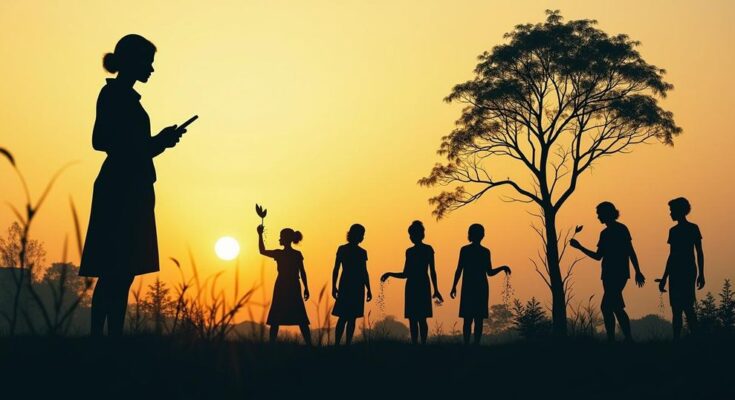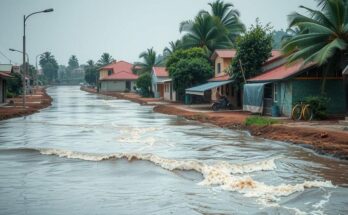During the Annual Community of Practice Network Convention 2024, Environment Adviser Syeda Rizwana Hasan highlighted the significant impact of climate change on women in Bangladesh, particularly mothers. She pointed out the specific struggles related to food security and clean water access, urging for increased awareness and support from developed nations. The event also recognized outstanding women-led climate initiatives.
On October 7, 2024, Syeda Rizwana Hasan, the Environment Adviser of Bangladesh, emphasized the severe impact of climate change on women, particularly mothers, during her remarks at the “Annual Community of Practice Network Convention 2024” in Dhaka. She highlighted women’s crucial roles as primary caregivers and their responsibilities in providing sustenance for their families, stating, “Women, as primary caregivers, are responsible for putting food on the table for their children daily. This is why, during any disaster or climate change event, challenges faced by the women are the greatest.” Adviser Hasan pointed out specific difficulties that women encounter due to climate-related issues, noting, for example, that in regions such as Khulna, the scarcity of clean water has led many women to resort to birth control pills to manage menstrual cycles. Furthermore, she indicated that pregnant women often suffer from elevated blood pressure due to saline water contamination, stating, “During pregnancy, many women suffer from high blood pressure due to the saline water. Despite an abundance of water, there is a critical shortage of safe drinking water.” The event was supported by UN Women and attracted experts as well as activists engaged in climate adaptation and gender equality initiatives. Rizwana Hasan expressed concern over the reluctance to recognize the effects of climate change, despite visible phenomena like heatwaves and floods, asserting that global discussion is necessary. She called for regional collaboration to confront climate challenges effectively. “Next month, all countries will gather to discuss how to support nations affected by climate change. Developed countries burn more fossil fuels, and yet they have failed to deliver the promised funds to the affected nations through the Loss and Damage Fund. Developed nations talk big but fail to provide the necessary financial support. However, Sweden has been an exception,” she commented. The convention also acknowledged the achievements of women in the area of climate change adaptation, with Hasan presenting awards to five exemplary initiatives led by women.
Climate change disproportionately affects various demographics, with women particularly vulnerable due to their roles within household structures and communities. In Bangladesh, a country that faces a multitude of climatic challenges—including floods, cyclones, and saline water intrusion—women often experience compounded hardships during environmental disasters. This context highlights the importance of focusing on gender-specific impacts and responses to climate change, as well as the need for inclusive policies that support women’s resilience and adaptation strategies. The recognition of women’s contributions to climate adaptation efforts is critical in addressing the ongoing climate crisis and building sustainable communities.
In conclusion, Syeda Rizwana Hasan’s remarks underline the critical nature of addressing the unique challenges faced by women in the context of climate change. The emphasis on women’s roles as caregivers and the need for safe drinking water reflects broader societal issues that require urgent attention. With a call for regional cooperation and recognition of women’s contributions to climate adaptation, it becomes clear that effective solutions must incorporate gender equality and adequate support from developed nations.
Original Source: asianews.network




